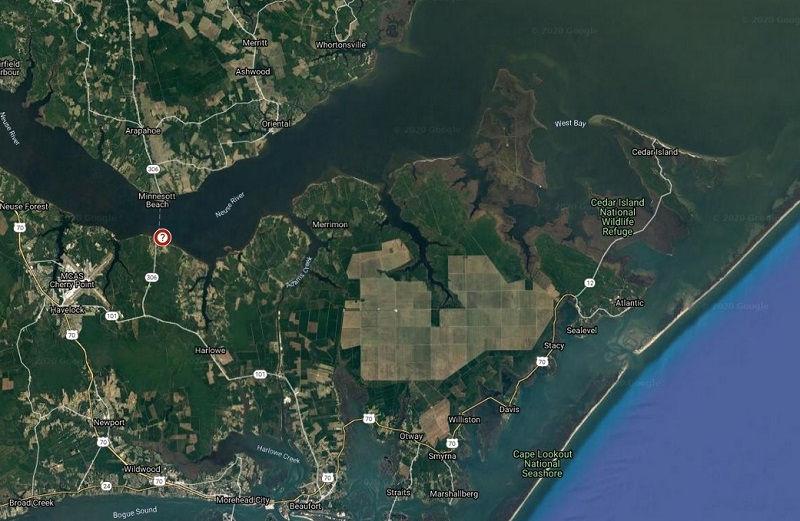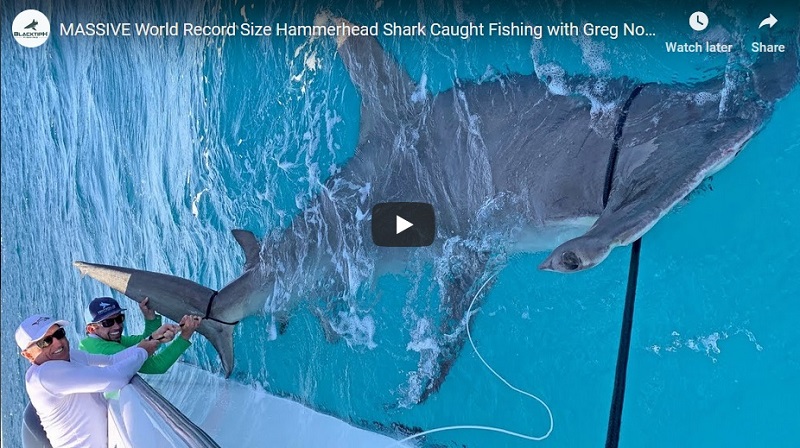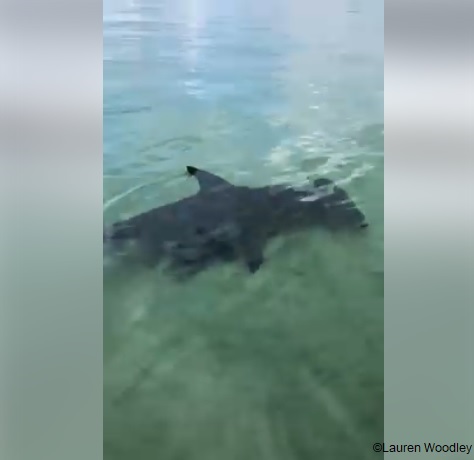A Hammerhead shark was found buried in the sand north of Juno Beach Pier at Singer Island Florida.
The shark died after being caught by fisherman during the Blacktip Challenge.
The Florida Fish and Wildlife Commission were called, but did not issue any citations as the shark died while it was being released.
Marine Biologist David Shiffman wrote a very informative article on Hammerhead sharks, the laws pertaining to them and the way they are portrayed in the media.
Below is an excerpt from Mr. Shiffman’s article:
It’s illegal for anglers to land hammerheads in Florida. It’s time that media coverage pointed that out.
On January 1st, 2012, new Florida Fish and Wildlife Conservation Commission regulations came into effect, making it illegal for fishermen to land great, smooth, or scalloped hammerhead sharks in Florida waters. The legal term “land” is clearly defined in the Florida Code:
“Land,” when used in connection with the harvest of marine organisms, means the physical act of bringing the harvested organism ashore”
“Harvest” means the catching or taking of a marine organism by any means whatsoever, followed by a reduction of such organism to possession. Marine organisms that are caught but immediately returned to the water free, alive, and unharmed are not harvested”
Florida code section 68B-44 (emphasis mine)
In other words, if a fish is brought out of the water, it is “landed”. If anglers stop the act of releasing a fish to measure it or take a photo, it is not “immediately released.” If a fish isn’t “immediately returned alive and unharmed” (and if the extremely physiologically stressful act of bringing a hammerhead out of the water results in it dying after release, it was not released “unharmed,”) it is harvested. If you drag the shark out of the water and leave it there until it stops moving long enough that you feel safe to approach it, that is not an “immediately released” animal, and it isn’t an animal that is “released unharmed.” Landing and/or harvesting hammerhead sharks is illegal. This is clear under the law, and has been confirmed by numerous consultations with an FWC Law Enforcement official.”
Read the full article at Southern Fried Science
The incident is getting so much attention because hammerhead sharks suffer from delayed mortality, in which the stress of being caught often result in the death of the shark.
Tournament founder Josh Jorgensen told WPTV participates respect the animals and release the sharks back into the water quickly.
‘I wish people that criticize would just come and see how much these anglers respect the animals.”
According to the website, Jorgensen says the tournament assists with shark research as well, working with the International Land-Based Shark Fishing Association and the National Oceanic and Atmospheric Administration’s Apex Predator Cooperative Shark Tagging Program.
Measurements taken of the sharks are used by researchers to estimate weight formulas and the application of tracking tags aids in research.
The tournament also drew criticism from life guards since beach near the anglers had to be closed for 6 hours due to the presence of sharks.
Palm Beach County Ocean Rescue lifeguard Brian Bowen told WPTV “To actually throw bait in the water specifically for sharks next to swimming areas is not right.”
“As far as attracting them and being right next to guarded swimming areas, it is not the right thing to do,” Bowen said.
Attention @MyFWC @MyFWClife : illegal shark fishing at the Blacktip Challenge tournament! pic.twitter.com/KOJVfgQHC9
— David Shiffman (@WhySharksMatter) January 31, 2015
What do you think about the situation? Should shark fishing be allowed near swimming areas? Should hammerheads and tiger sharks be released as soon as they are identified as such? How do you properly balance the rights of fisherman with the rights of swimmers and those of a protected species?
Let us know in the comments.
Direct link to the video: Here



Comments are closed.